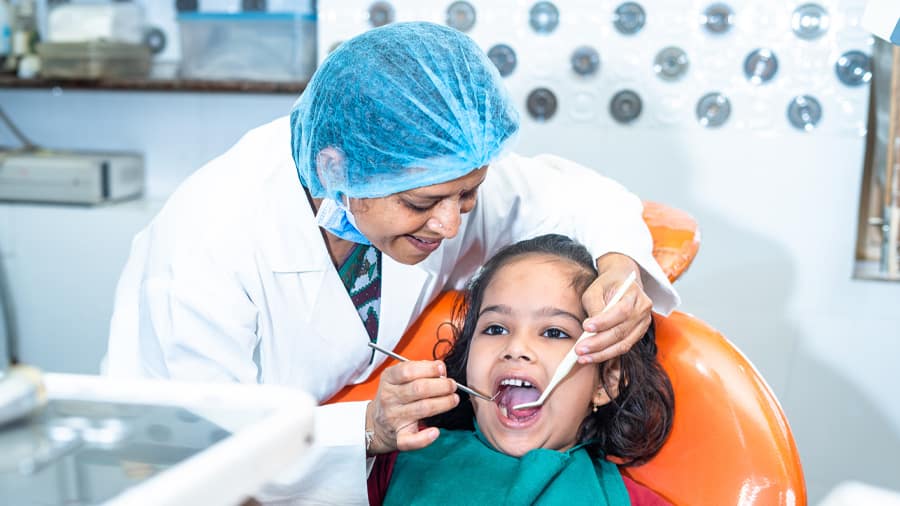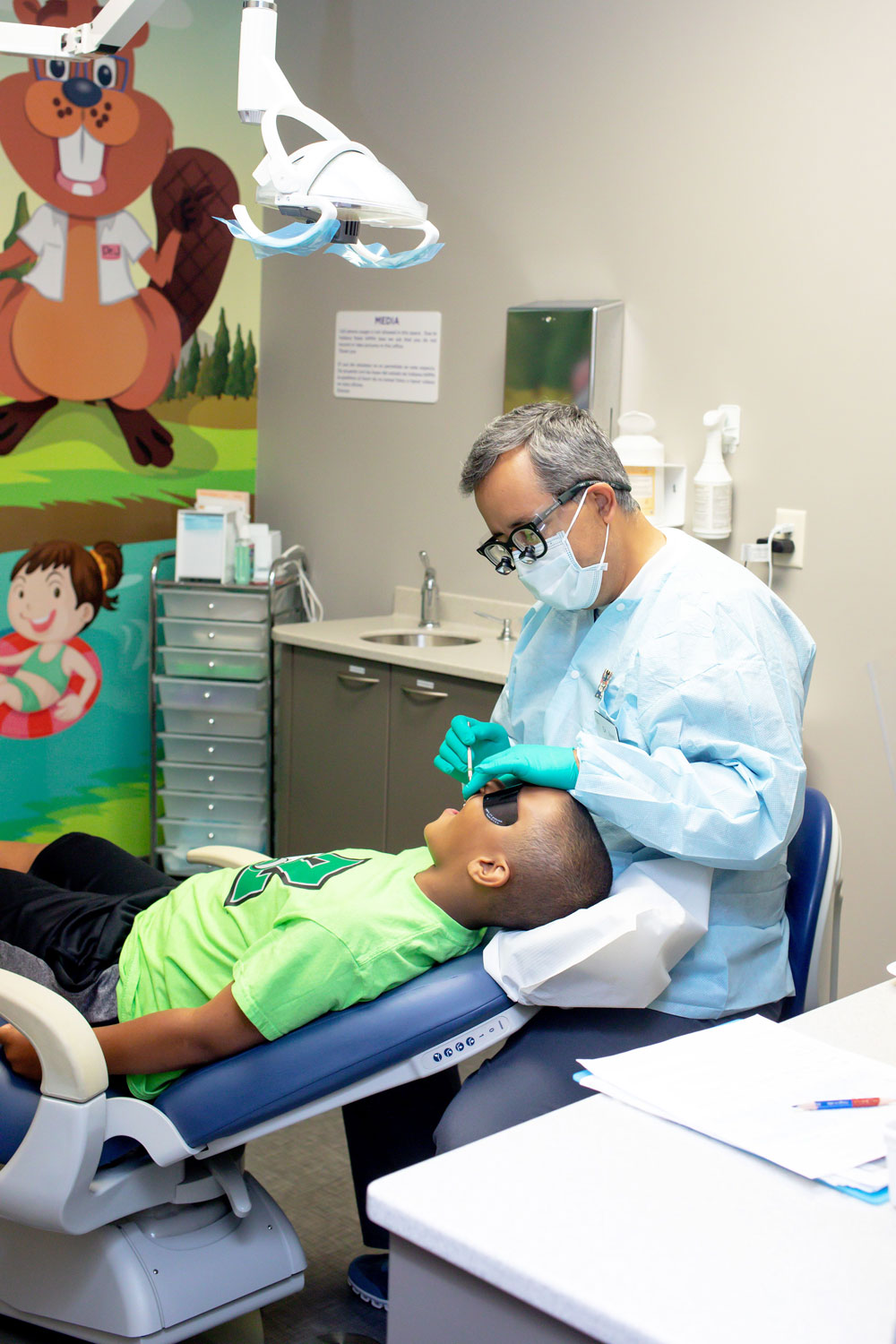Discovering the Best Pediatric Dentist for Your Youngster's Dental Wellness
Discovering the Best Pediatric Dentist for Your Youngster's Dental Wellness
Blog Article
Pediatric Dental Emergencies: What Moms And Dads Required to Know for Quick and Effective Therapy
In the world of pediatric healthcare, oral emergencies can develop all of a sudden, leaving parents unsure of exactly how to manage the circumstance successfully. Recognizing the signs, kinds of injuries, and immediate activities to take can make a considerable distinction in the end result for a youngster's dental health. With a fast and appropriate response, moms and dads can mitigate prospective lasting consequences and guarantee their kid receives the needed treatment quickly. By being prepared and educated, parents can play an essential duty in guarding their kid's oral wellness.
Indicators of Pediatric Dental Emergencies
When analyzing pediatric dental emergencies, it is vital for moms and dads to be vigilant for certain indicators suggesting potential major issues. Among the primary indicators of a dental emergency in children is relentless tooth pain that is not eased by over-the-counter pain medications. This might suggest an underlying infection or damage that needs instant interest from a dentist. Swelling in the periodontals, face, or jaw area is an additional warning that needs to not be overlooked, as it might be an indication of an abscess or other serious dental condition.

Typical Kinds Of Dental Injuries
Typical kinds of oral injuries in youngsters frequently arise from mishaps or sports-related activities that can cause different forms of trauma to the mouth and teeth. One common dental injury is a broken tooth, which can range from a small chip to an extra serious break involving the inner layers of the tooth. Another frequent injury is a knocked-out tooth, where prompt action is vital to increase the opportunities of conserving the tooth. Children may also experience oral injuries like tooth intrusion, where the tooth is pressed right into the jawbone, or avulsion, which is the complete variation of a tooth from its socket. In addition, oral injuries can consist of luxation, where the tooth is dislodged but not totally knocked senseless, or soft cells injuries to the periodontals, lips, or tongue. It is vital for moms and dads to be familiar with these common kinds of oral injuries to give prompt and suitable care in instance of emergencies.
Immediate First Help Actions
Upon experiencing a pediatric dental emergency, swift and appropriate first aid steps are crucial to minimize pain and stop additional issues. For a knocked-out tooth, advise the child to delicately wash the tooth with water, trying not to touch the origin, and place it back in the socket preferably. If re-implantation is not practical, save the tooth in a container of milk or the youngster's saliva till reaching the dental professional. In situations of a busted or broke tooth, wash the mouth with warm water and apply a chilly compress to minimize swelling. A bitten lip or tongue need to be cleansed delicately with water, and a cold compress can aid minimize discomfort and reduce swelling. For things stuck between teeth, stay clear of utilizing sharp tools and instead motivate the kid to delicately floss to displace the product. In all instances, it is essential to get in touch with additional info a pediatric dental practitioner quickly for further analysis and therapy.
When to Look For Expert Help
Looking for timely dental care from a pediatric specialist is important in addressing potential problems arising from pediatric oral emergencies. Parents ought to seek specialist assistance right away if their child experiences serious tooth pain, face swelling, bleeding that does not stop, a knocked-out long-term tooth, or any type of injury to the mouth or face. These indications indicate a severe dental concern that requires prompt interest from a pediatric dental practitioner.
Furthermore, if a youngster grumbles of relentless tooth sensitivity to warm or cold, trouble eating or ingesting, or signs of infection such as pus around the periodontals, parents ought to not postpone in seeking professional oral treatment. These signs could show underlying dental troubles that need to be resolved quickly to prevent additional difficulties.
In situations of dental emergency situations, it is important for moms and dads to speak to a pediatric dental practitioner asap to make certain proper medical diagnosis and therapy - children dentistry oakland. Postponing professional help can lead to exacerbated oral problems and extended discomfort for the child

Preventing Future Oral Emergencies
To minimize the possibility of future oral emergencies, moms and dads must focus on regular dental hygiene techniques and routine brows through to a pediatric dentist for precautionary treatment. Motivating youngsters to brush their teeth two times a day with fluoride toothpaste and educating them the appropriate strategy for two mins each time can significantly lower the risk of dental problems. Flossing day-to-day is also essential to eliminate plaque and food fragments in between teeth, where a toothbrush can not reach. In addition, restricting sugary treats and beverages can assist protect against dental cavity and tooth cavities. official site
Regular check outs to a pediatric dental practitioner for examinations and cleansings are important for early detection of any prospective dental troubles. find more info These consultations permit the dentist to keep an eye on the kid's oral health and wellness, offer expert cleansings to remove plaque and tartar build-up, use fluoride treatments for added defense, and deal guidance on correct oral care techniques.
Final Thought
In final thought, parents must understand the signs of pediatric oral emergencies, typical sorts of dental injuries, prompt emergency treatment actions, and when to seek professional help. By taking positive steps to prevent future oral emergencies, moms and dads can guarantee quick and effective treatment for their youngsters. It is essential to remain informed and prepared in order to take care of any oral emergency that might arise.
Report this page